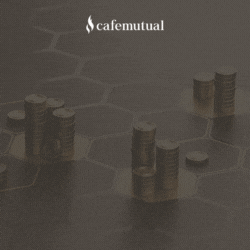In the past few months, defaults and credit rating downgrades of debt securities have dragged NAVs of debt funds.
To tackle this, MFs have resorted to a range of measures. Side pocketing, taking the troubled securities into AMC’s book, and suspending fresh flows into the troubled schemes are among thef actions that MFs have taken so far.
But, what is the most effective measure?
Most industry experts feel that side pocketing is the best course of action, for a scheme having exposure to troubled debt papers. The process does not allow fresh inflows to the segregated portfolio even while investments can be made and redeemed from the liquid portion. As and when there is recovery from the troubled papers, the exact proportion of the recovered amount goes to the existing unit holders.
However, some experts said that these steps cannot be measured on the scale of effectiveness alone. MFs took the steps according to their convenience.
Vidya Bala, Head of MF Research, Fundsindia, explains that the fund houses that suspended fresh inflows from new investors decided to do that as the troubled papers were maturing in the next few months. On the other hand, fund houses such as UTI MF did not suspend fresh inflows, because they held debt papers that were set to mature in a couple of years.
Talking about Tata MF, she said, the fund house could do side pocketing, since it had already initiated the process.
SEBI allowed AMCs to do side pocketing in December last year. Hence, schemes launched before December 2018 do not have the side pocketing provision. Now, for doing side pocketing, an AMC needs to amend the SID. This amounts to a ‘fundamental’ change in the scheme, which means the AMC must give investors a 30-day window to leave the fund without any exit load.
However, in case of Tata MF, the fund house had already made changes in the SID of all its debt schemes to avail side pocketing, before NAV of these schemes took a beating.
Here is a summary of the steps taken by different MFs for your reference:
Take it on your book – HDFC AMC announced that it would buy the Essel group non-convertible debentures (NCDs) from its troubled FMP schemes. These are schemes, whose maturity fall between April and September 30, 2019, and which have exposure to NCDs worth Rs.500 crore issued by Edisons Infrapower & Multiventures and Sprit Infrapower & Multiventures.
While the decision is seen as a lifeline to unit holders, the fund house has been criticized for passing the risk to shareholders of the AMC. Besides, some industry experts also feel this would set a bad precedent, since the AMC is a pass through vehicle.
Rollover – HDFC AMC had also rolled over one of its FMP scheme maturing in April to next year. Market regulator SEBI had issued a notice to the fund house for the move. The underlying papers in an FMP have to mature on or before the maturity date of the fund. Post the standstill agreement, Essel Group papers were effectively maturing after the original maturity date of the FMP, a violation of SEBI rule.
Defer part of payment – Kotak MF withheld a part of the redemption amount in some of its affected FMP schemes. Like in the case of HDFC AMC, these schemes had exposure to Essel group companies. Kotak MF is also a part of consortium who had entered into a standstill agreement with Essel group.
Selling the collateral shares – Reliance MF, unlike other MFs, sold the equity shares of Essel group to recover the dues. The unit holders took a hit on their investment following the AMC’s decision to sell the collateral. However, some feel, this is how the MF business should run. Those who favour this move argue: If unit holders take the profit, should not they bear the loss as well?
Exit load: UTI MF introduced an exit load on fresh investments in some of its debt schemes. These schemes saw a sharp drop in their NAV following rating downgrade of Dewan Housing Finance.
The fund said that it is doing it to protect the interests of existing investors and to prevent bargain-hunters benefitting from the situation.
Suspending fresh flows – Fund houses such as DHFL Pramerica MF, DSP MF, BNP Paribas MF and Baroda MF opted for this measure to prevent opportunistic investors from investing at the low NAV post DHFL downgrade. DHFL Pramerica MF also merged some of its schemes.
Side Pocketing: Tata MF opted for side pocketing in three of its schemes - Tata Corporate Bond Fund, Tata Medium Term Fund and Tata Treasury Advantage Fund – after they took a hit due to the DHFL debt event.





